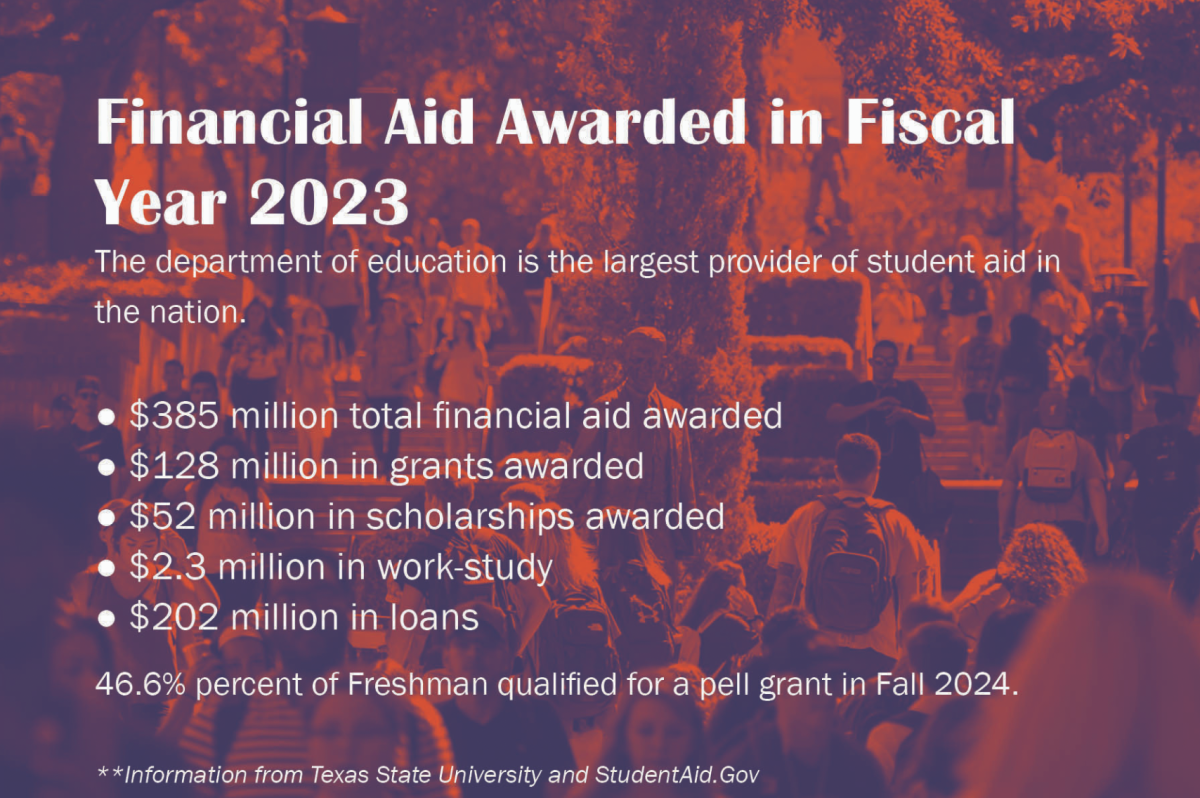To facilitate an increase in transfer enrollment of Black, Hispanic and non-traditional students, Texas State and Austin Community College (ACC) have partnered in the Equity Transfer Initiative, a grant-based initiative that will support resources and expand learning pathways for underrepresented student populations.
The two-year initiative will provide $27,500 in assistance to both Texas State and ACC, the only two Texas institutions to receive the grant. There are five transfer pathways for students participating in the program, including education, computer science, nursing, business and engineering.
At least 100 students will embark upon one of the five transfer pathways during the first year of the program. By the second year, the number of students will increase to 300 or more.
Texas State’s associate vice president for Enrollment Management and Marketing, Gary Ray, says ACC is Texas State’s top transfer institution. In fall 2020, 1,290 students transferred from ACC.
With education being a great influencer of social mobility, Ray says Texas State aims to work with ACC to provide students facing unusual barriers with access to opportunities.
“This became very evident as a lot of the community colleges dropped in enrollment by about 8% in the state of Texas,” Rays says. “Certainly, we knew we needed to act, and [the Equity Transfer Initiative] became one of those vehicles in which we’ve addressed to support students…which [will] make them successful in the future.”
This past year, Texas State has worked closely with ACC to identify the top 13 majors transfer students select to study at Texas State. Ray says the institutions have worked to ensure those pathways of study and academic advisers are all on the same page to streamline communication and advising so students do not spend unnecessary money on classes.
“We’re really trying to create clear pathways for students to be successful. We also know that the pandemic has created a tremendous amount of adversity for students enrolling in college,” Ray says. “Community colleges serve as one of the most diverse populations and have taken the greatest hits in the past year, and certainly we wanted to do something about that.”
Through this grant, the institutions are looking toward potentially launching a summer pilot program where students can take classes at Texas State to begin crossover enrollment.
While the institutions have not fully decided how they will allocate funds, ACC Transfer Resources Director Renee Esparza says the institutions will work with a national transfer expert coach to help determine where the grant money could go.
In the meantime, Esparza says there are several ideas for different types of programming that could assist traditionally underserved students. One of those initiatives includes working closely with ACC students who are interested in transferring to Texas State early on.
“We’ve talked about making sure that things like advising from Texas State advisers are available to ACC students on ACC campuses or orientation,” Esparza says. “For students who are transitioning between ACC and Texas State, we might be able to offer some type of new student advising or orientation on the ACC campuses so that they don’t have to drive all the way to San Marcos.”
The Equity Transfer Initiative targets underrepresented student populations, including Black, Latinx, adult and first-generation students. Esparza says these groups of students struggle the most when transferring, according to national trends. She adds when transferring to four-year universities, one of the biggest challenges students across the nation face is credit loss.
“What we want to address is making sure that they have the information and a clear pathway for them so that they’re always taking the right class that will transfer and apply to the degree that they’re in at Texas State,” Esparza says.
ACC and Texas State also aim to examine the success rates, by ethnicity, of traditional classes transfer students enroll in. Through this examination, Ray says the institutions will better understand the areas in which certain students need additional support.
Both institutions plan to implement a contact person in their main administration offices to serve as additional resources. Through the contact person, transfer students will have a “go-to person” for questions. Contact persons are expected to work in areas such as admissions, financial aid, Career Services, advising, Office of Veterans Affairs, academic services and in academic colleges.
Sylvia Gonzales is the director of the Title III STEM Impact and Title IV Project Maestros grants — grants aimed to assist with increased retention and graduation rates of Hispanic/Latinx students.
Gonzales has worked with the Project Maestros program for about three years and transfer students for about the same amount of time. According to Gonzales, Project Maestros plans to collaborate with the implementation team that is part of the Equity Transfer Initiative grant.
Project Maestros currently offers a transfer navigator who primarily works with ACC in classroom visits where they discuss degree programs available at Texas State and the requirements needed to transfer into the university’s certification programs.
She says this transfer navigator provides transfer students with a sense of belonging which, from her experience of working with transfer students, is among the greatest challenges students face.
“They don’t ever feel like they’re making a connection, like they’re creating that school spirit or that community, that sense of belonging, to feel like they are Bobcats,” Gonzales says.
Gonzales believes the Equity Transfer Initiative will benefit students by providing them with additional resources and connections.
“Anytime that we can really provide those additional resources to students, I mean, they’re gonna benefit from that, because that just means that they have more people committed to helping them, you know, achieve that transition successfully,” Gonzales says.
While the grant will provide funding to both institutions, this is not the first time Texas State and ACC have worked together. Esparza says the Equity Transfer Initiative will continue to build on the work of the Texas Transfer Alliance, a previous and recent initiative Texas State and ACC have collaborated on. The program is slated to last for two years. However, both institutions hope the partnerships and initiatives are long term.
“We have such a strong partnership with Texas State, and we have so many students who start at ACC and transfer to Texas State,” Esparza says. “This is just another opportunity for us to really hone in on what strategies and what support the students who are starting as river bats and moving to be Bobcats need as they work on that transfer.”
Categories:
Texas State to provide assistance to underrepresented transfer students
Brianna Benitez, News Editor
February 24, 2021
0
Donate to The University Star
Your donation will support the student journalists of Texas State University. Your contribution will allow us to purchase equipment and cover our annual website hosting costs.
More to Discover















